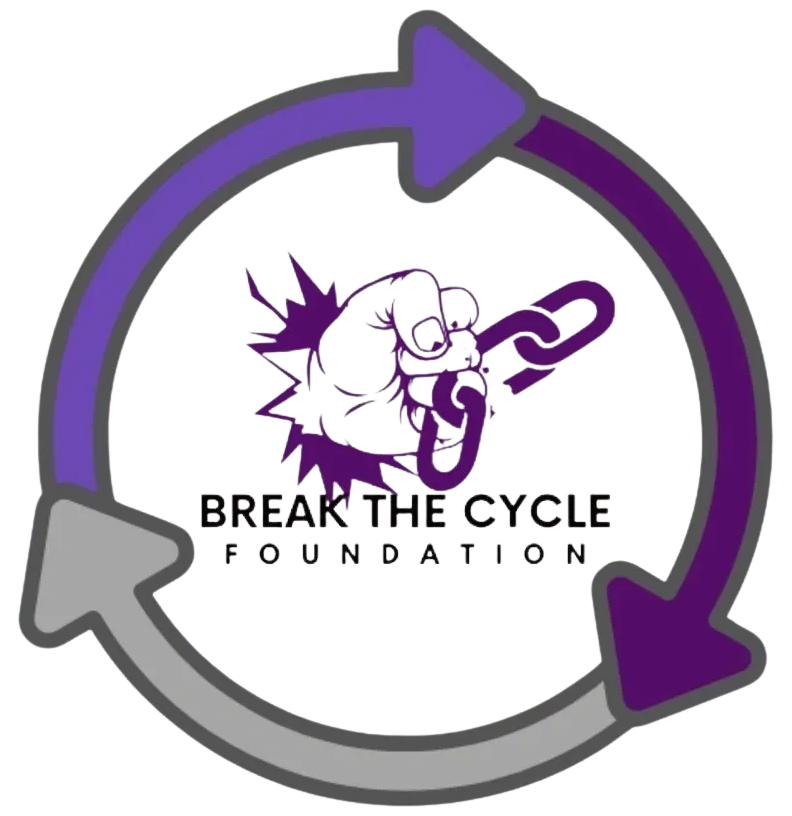Understanding Therapy Goals
In outpatient therapy, establishing clear therapy goals is essential to the healing process. Let’s delve into why these goals are crucial and how to set personalized objectives tailored to individual needs.
Importance of Therapy Goals
Therapy goals play a crucial role in guiding the therapeutic journey. They are designed to help individuals identify, understand, and change difficult thoughts, emotions, and behaviors, aiming to lead to a healthier, happier, and more balanced life. Setting goals is important because:
- Measurement of Progress: Therapy goals act as markers of accomplishment in healing, providing a way to measure progress.
- Enhanced Communication: They enhance communication between the therapist and the client, ensuring that both parties are aligned.
- Boosting Motivation: Clear goals can boost motivation and encourage clients to stay committed to their treatment.
- Effective Treatment: Well-defined goals ensure that treatment is working effectively and indicate when adjustments are necessary.
| Benefit | Description |
|---|---|
| Measurement of Progress | Provides a tangible way to assess improvements. |
| Enhanced Communication | Ensures therapist and client are on the same page. |
| Boosting Motivation | Encourages commitment to the treatment process. |
| Effective Treatment | Helps track efficacy of the treatment plan and signal when changes are needed. |
Understanding the importance of therapy goals helps us appreciate their role in the overall treatment plan.
Setting Personalized Goals
Setting personalized therapy goals involves a collaborative process between the therapist and the client. It ensures that the goals are relevant and achievable, catering to the unique needs of the individual. Here’s how:
-
Identifying Issues: The first step is to identify the client’s presenting issues. This could involve understanding the nature of their difficulties, their symptoms, and the impact of stress on their problem-solving abilities (Kate Walker Training).
-
Reflecting on Experiences: Clients should reflect on their symptoms, bothersome thoughts, emotions, behaviors, past experiences, and stressors. This helps in establishing a starting point for therapy (Choosing Therapy).
-
Setting Specific Goals: Goals should be specific, measurable, achievable, relevant, and time-bound (SMART). They should address the client’s unique situation and desired outcomes.
-
Creating a Treatment Plan: A comprehensive treatment plan is developed to outline the steps needed to achieve the set goals. This involves planning the sessions to ensure time is well spent and progress is monitored (Positive Psychology).
-
Adjusting Goals as Needed: Therapy goals can evolve as the client progresses. It’s important to revisit and adjust them to ensure they remain relevant and achievable.
For more in-depth details on setting realistic recovery goals, visit our article on setting realistic recovery goals with your care team.
To summarize, the process of setting personalized therapy goals is fundamental in ensuring that treatment is effective and aligned with the client’s needs. By focusing on specific outcomes and regularly reviewing progress, we can achieve meaningful and lasting results. If you want to know more about what to expect during your first outpatient therapy session, visit our related articles on how structured counseling helps break the cycle of addiction and understanding the intake and assessment process.
Types of Therapy
When it comes to addiction treatment, understanding the benefits of different types of therapy can help individuals choose the best approach for their needs. Here, we explore individual therapy and family therapy, two common forms of treatment that offer distinct advantages.
Individual Therapy Benefits
Individual therapy provides one-on-one support for various mental and behavioral health conditions. Sessions involve meeting with a therapist who focuses on the individual’s specific needs and goals. Typical objectives in individual therapy include managing anxiety or depression, improving communication skills, and setting healthy boundaries (Charlie Health).
Key Benefits:
- Personalized Attention: One-on-one sessions allow therapists to tailor their approach based on the individual’s unique needs.
- Increased Accountability: Regular sessions help individuals stay on track with their recovery goals.
- Confidential Environment: The private setting encourages open and honest communication.
For more details about what to expect in individual counseling, visit our page on individual counseling for addiction: what to expect.
| Benefit | Description |
|---|---|
| Personalized Attention | Tailored therapeutic approach |
| Increased Accountability | Regular monitoring of progress |
| Confidential Environment | Safe space for open communication |
Family Therapy Advantages
Family therapy involves working with family members to improve communication, manage conflicts, and support each other better. This type of therapy addresses the dynamics within the family that may contribute to substance use and helps in building a supportive network for the individual in recovery.
Key Advantages:
- Conflict Resolution: Assists in managing conflicts and finding mutually acceptable solutions.
- Enhanced Communication: Improves the overall communication skills within the family unit.
- Support System: Strengthens the family as a support system, which is crucial for long-term recovery.
For individuals and families looking to understand the benefits of group therapeutic settings, our article on group therapy for substance use: how it supports recovery offers valuable insights.
| Advantage | Description |
|---|---|
| Conflict Resolution | Managing conflicts and finding solutions |
| Enhanced Communication | Improving family communication skills |
| Support System | Strengthening the family’s supportive role |
Choosing the right type of therapy is essential for effective treatment. Both individual and family therapy offer unique benefits that can help individuals on their recovery journey. To start your path towards recovery with Break The Cycle Foundation, consider these therapies’ advantages and explore how they align with your needs. If you’re wondering how to set effective recovery goals, check out our guide on setting realistic recovery goals with your care team.
Monitoring Therapy Progress
Evaluating progress during therapy is vital for understanding emotional, mental, and behavioral growth. Monitoring this progress helps ensure that treatment remains effective and aligns with the goals clients set along their journey. Two crucial elements in this process are utilizing journaling and evolving therapy goals.
Utilizing Journaling
Journaling serves as a powerful tool in tracking progress during therapy. It assists in evaluating emotional growth and monitoring changes in behavior and feelings. Doing so can be particularly helpful for individuals undergoing addiction treatment at Break The Cycle Foundation.
- Tracking Emotions: Journaling allows clients to record their emotions and thoughts, providing insight into their mental state and understanding how therapy impacts their daily life. This record can highlight patterns, triggers, and progress over time.
- Motivation and Reflection: By regularly updating a journal, individuals can look back and see how far they’ve come, which can be incredibly motivating. It reinforces the commitment to achieving therapy goals.
- Therapist Insight: Journals can be shared with therapists to offer a more comprehensive view of the client’s progress, helping to adjust treatment plans as needed.
For more information on how structured counseling can aid in breaking the cycle of addiction, visit how structured counseling helps break the cycle of addiction.
Evolving Therapy Goals
Therapy goals are not static. As individuals work through their treatment, their objectives may evolve. This evolution is a normal and important aspect of the therapeutic process.
- Reviewing Goals: Regularly reviewing and assessing goals ensures they remain relevant and achievable. Changes in a client’s understanding of themselves or their situation may necessitate goal adjustments.
- Setting New Goals: As clients achieve initial objectives, new goals can be set to continue progress. This ongoing adjustment helps maintain engagement and ensures continuous growth.
- Addressing Obstacles: Therapy sessions often include overcoming setbacks or addressing unforeseen challenges. Evolving goals allow for flexibility in treatment, accommodating the client’s changing needs and circumstances.
According to Positive Psychology, planning and assessment are essential parts of effective counseling, emphasizing the importance of evolving therapy goals as part of a broader treatment plan. For further reading on setting realistic recovery objectives with your care team, check out setting realistic recovery goals with your care team.
| Activity | Benefit |
|---|---|
| Journaling | Track emotional growth |
| Goal Review | Ensure goals remain relevant |
| New Goals Setting | Continue progress and engagement |
| Address Obstacles | Maintain flexibility in treatment |
Monitoring therapy progress through methods like journaling and evolving therapy goals is essential in achieving successful outcomes in addiction treatment. By regularly assessing and adjusting the therapy process, clients can ensure they are on the right path towards recovery. For additional resources, visit our article on what to expect during your first outpatient therapy session.
Mental Health Treatment Plans
Creating an effective treatment plan is essential for achieving positive outcomes in mental health therapy. At Break The Cycle Foundation, we prioritize personalized and structured treatment plans to guide individuals through their recovery journey.
Goal Setting in Therapy
Setting goals in therapy is a vital aspect of the healing process. Therapy goals help individuals recognize, understand, and alter challenging thoughts, emotions, and behaviors to lead a healthier and more balanced life.
Goals and objectives in a mental health treatment plan serve multiple purposes:
- Measuring Progress: Clear goals act as benchmarks to track improvements over time.
- Boosting Motivation: Achieving small goals can significantly boost a client’s motivation.
- Guiding Treatment Adjustments: Goals indicate when adjustments in treatment are necessary to better align with the patient’s evolving needs (J. Flowers Health Institute).
Developing therapy goals should be a collaborative effort between the therapist and the client. Utilizing frameworks like the SMART Goal Framework ensures that goals are:
- Specific
- Measurable
- Achievable
- Relevant
- Time-bound
This ensures that the goals align with the client’s needs, preferences, and therapeutic approach (Positive Psychology). Learn more about setting realistic recovery goals with our guide.
Evidence-Based Approaches
Evidence-based approaches are essential for creating effective mental health treatment plans. These approaches rely on scientific evidence and have been proven to be effective through rigorous research. At Break The Cycle Foundation, we employ several evidence-based models:
- Cognitive-Behavioral Therapy (CBT): Focuses on changing negative thought patterns and behaviors.
- Dialectical Behavior Therapy (DBT): Aims to help individuals manage emotions and stress while improving relationships.
- Motivational Interviewing (MI): Enhances an individual’s motivation to change negative behaviors.
- Strength-Based Approach: Emphasizes the individual’s strengths and resources to overcome challenges.
- Person-Centered Therapy (PCT): Provides a supportive environment where clients can lead the direction of their therapy (J. Flowers Health Institute).
Utilizing these approaches ensures that each treatment plan is tailored to meet the specific needs of the individual, promoting effective and personalized care. Each session is a step towards understanding the challenges faced by the client and strategizing the best ways to address them. For more insights on the intake and assessment process, explore our detailed understanding the intake and assessment process guide.
By setting well-defined goals and employing evidence-based approaches, Break The Cycle Foundation is dedicated to providing comprehensive and effective addiction treatment services. For more information on how structured counseling helps break the cycle of addiction, visit our article.
Before Your First Session
Preparation Tips
Before attending your first outpatient therapy session at Break The Cycle Foundation, thorough preparation can make the experience more productive and stress-free. Here are some key preparation tips:
-
Outline Clear Therapy Goals: Reflect on what brought you to therapy and identify specific goals for what you hope to achieve. This could include issues such as managing stress, overcoming addiction, or improving relationships. Clear goals provide direction and purpose. For more on goal setting, see setting realistic recovery goals with your care team.
-
Gather Important Documents: Collect essential materials such as insurance information, medical records, notes from previous healthcare professionals and a list of current and past medications. Having this information handy will help streamline your session.
-
Write Down Your Thoughts: Reflect on why you are pursuing therapy, and articulate your feelings and concerns in writing. This can help organize your thoughts and serve as a starting point for the conversation during your session (CNET).
-
Familiarize Yourself with the Process: Knowing what to expect can ease anxiety. Look into the understanding the intake and assessment process for more insight.
Realistic Expectations
Understanding and setting realistic expectations for your therapy journey with us is crucial. Therapy is a valuable tool, but it requires time, effort, and patience. Here are some realistic expectations for your first session:
-
Therapists are Human: Therapists are professionals but not miracle workers. They will guide you using their expertise, but the healing process requires active participation from you. The first therapist you meet may not be the right fit, and it’s okay to seek another if necessary (Taylor Counseling Group).
-
Expect Emotional Reactions: Talking about your struggles may bring up various emotions. This is a normal part of the process and indicative of engagement with your journey.
-
Initial Sessions are for Building Rapport: The first few sessions are often focused on getting to know each other and understanding your background. Don’t expect immediate solutions.
-
Progress Takes Time: Significant changes or breakthroughs don’t happen overnight. Therapy involves gradual progress, requiring time and consistency.
By maintaining realistic expectations, you can approach your first session with a clear mind, ready to engage in the process effectively. For more detailed insight, read individual counseling for addiction: what to expect.
Through thoughtful preparation and setting realistic expectations, your first outpatient therapy session at Break The Cycle Foundation can be a significant step towards your recovery and wellness journey.
Outpatient Treatment Overview
Outpatient treatment is a key component of our comprehensive addiction recovery services at Break The Cycle Foundation. It provides flexibility and support for individuals who need treatment but also need to maintain their daily responsibilities.
Benefits of Outpatient Treatment
Outpatient treatment offers several advantages over inpatient programs, making it a highly viable option for many individuals in need of addiction treatment.
- Flexibility: Outpatient programs allow individuals to continue with their daily activities such as work or school. This flexibility helps integrate treatment into one’s life smoothly.
- Cost-Effective: Generally, outpatient programs are less costly than inpatient programs, making them accessible to a broader range of people.
- Support: Outpatient care provides continued support, which is crucial for long-term recovery. Services may include group therapy, individual counseling, and access to recovery groups like Alcoholics Anonymous (AA) and Narcotics Anonymous (NA), which have been shown to aid in sustained sobriety (Addiction Center).
| Program Type | Duration | Support Provided |
|---|---|---|
| Partial Hospitalization | A few weeks to several months | Intensive day-long therapy sessions |
| Intensive Outpatient | 3 to 6 months, extendable | Evening or weekend sessions; less intense than PHP |
To understand more about the structure and benefits of outpatient care, refer to our article on group therapy for substance use: how it supports recovery.
Outpatient Detox Programs
Outpatient detox programs are often suitable for individuals with mild to moderate withdrawal symptoms. These programs offer a safe and effective way to manage detoxification with the flexibility of returning home daily.
- Safe Withdrawal: Professional medical staff monitors patients to manage withdrawal symptoms safely. This level of care ensures any complications are promptly addressed.
- Continuity of Care: Outpatient detox allows for continuous engagement in therapeutic activities and support groups, fostering early sobriety.
- Long-Term Treatment Plans: Outpatient detox is often the first step in a comprehensive treatment plan that may include partial hospitalization or intensive outpatient programming.
For more information on the types of support available during outpatient treatment, please visit our detailed guide on individual counseling for addiction: what to expect and relapse prevention planning: core elements to include.
At Break The Cycle Foundation, we aim to deliver high-quality, flexible treatment options tailored to the needs of individuals dealing with substance use disorders. For additional details on designing a personalized treatment plan, explore our resources on how structured counseling helps break the cycle of addiction and setting realistic recovery goals with your care team.







